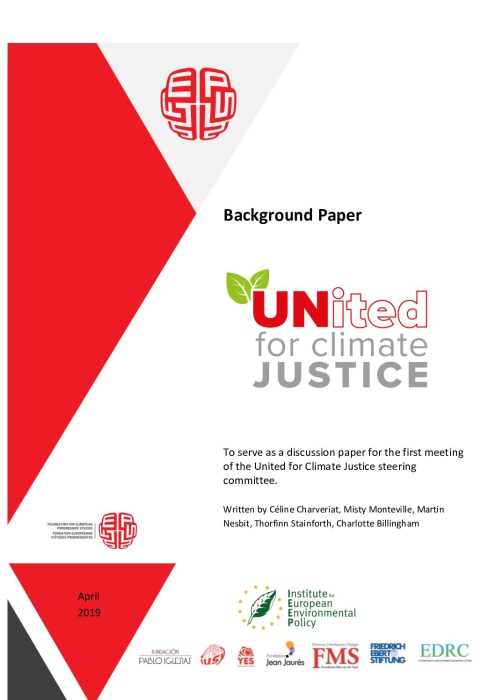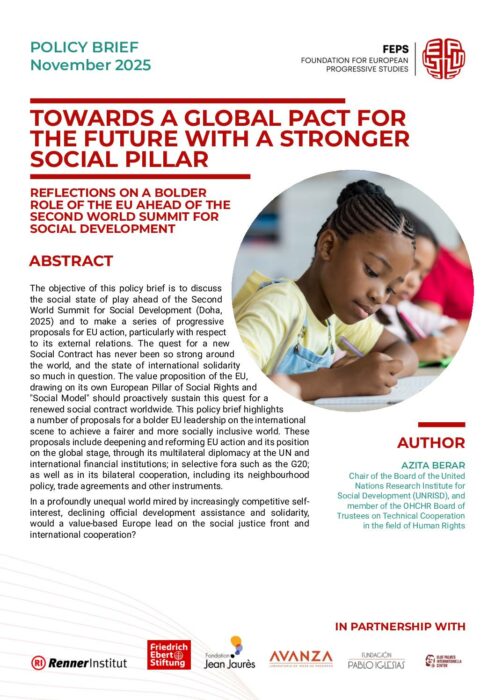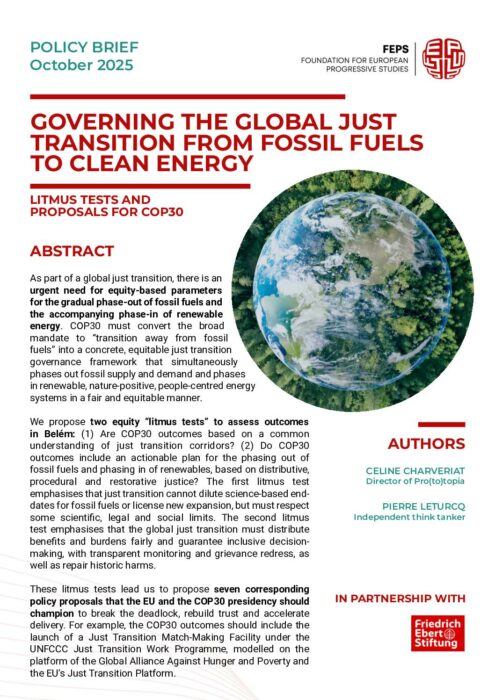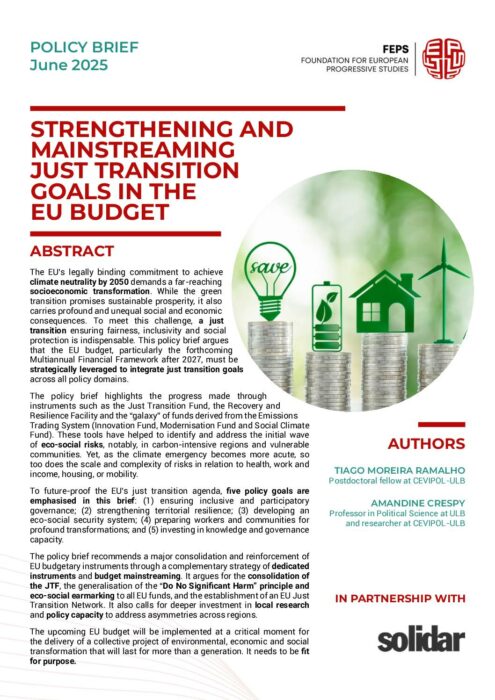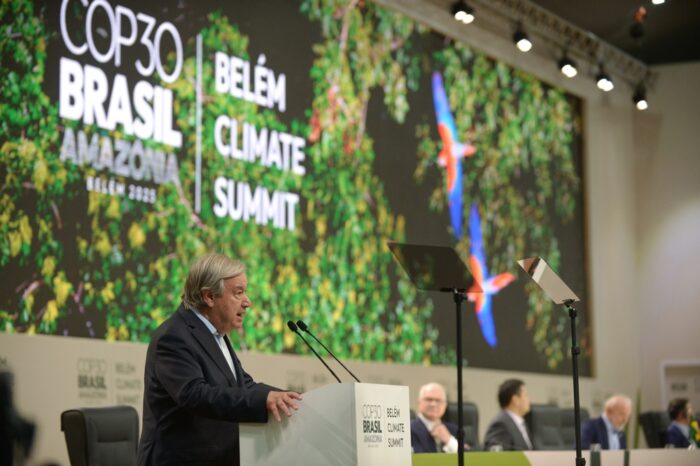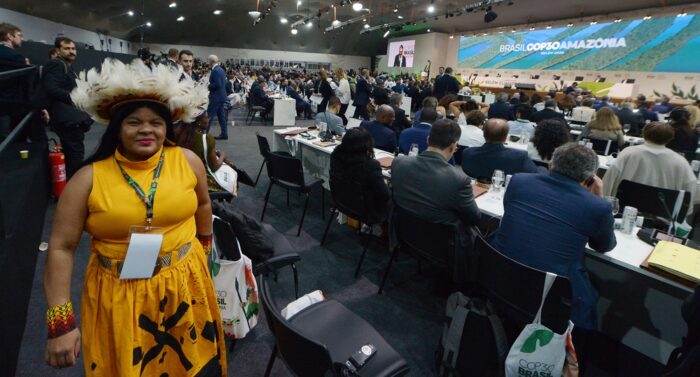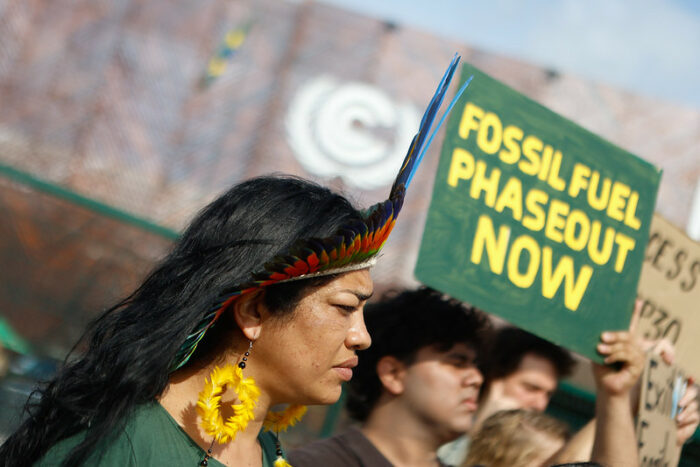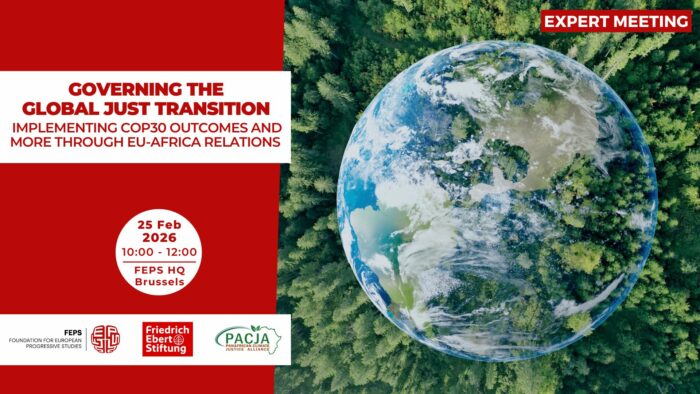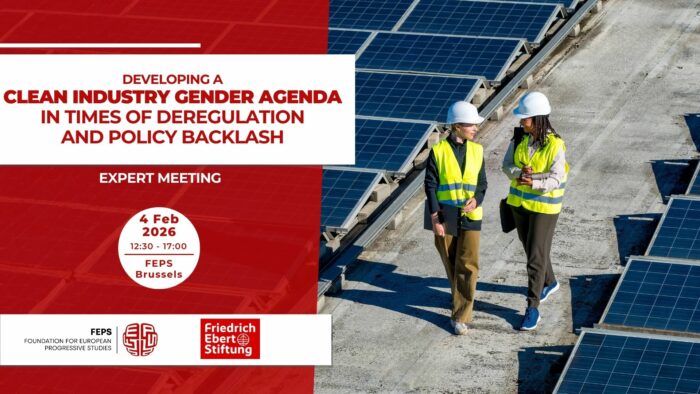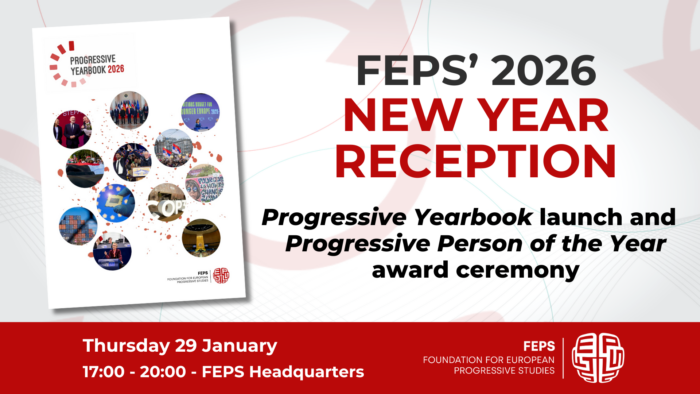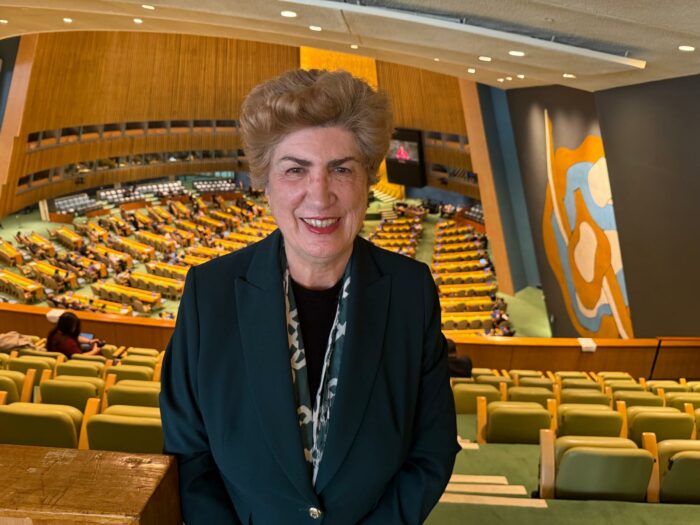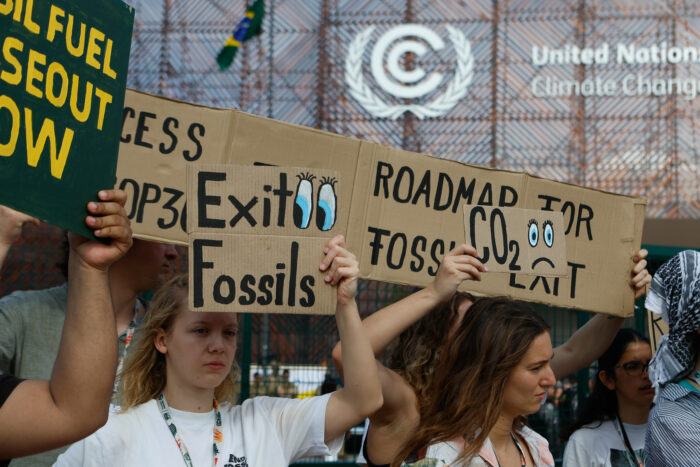Find all related publications
Publications
Find all related Progressive Post
Progressive Post
Find all related events
Events
Upcoming
Past
04/02/2026
FEPS HQ (Expert meeting)
29/01/2026
FEPS HQ
Load more...
Find all related Audiovisual
Audiovisual

04/02/2026
Find all related news
News
Find all related in the media
In the media
Las COP ya “no sirven” y deben ser reformadas, claman expertos en política climática
by La Vanguardia 15/11/2024

